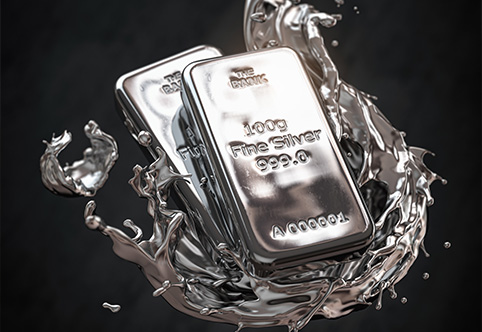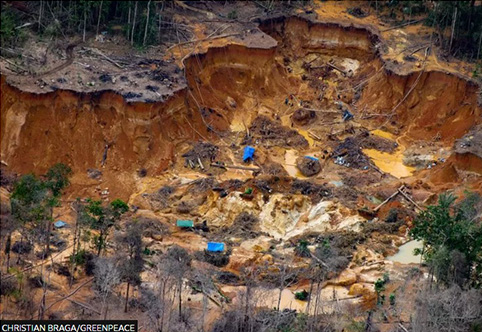Taking Steps to Become a Better Jewelry Industry


As the jewelry industry and its consumers learn more about the negative aspects of the mining, transportation, and manufacturing of gemstones and precious metals, all parties involved have recognized the need for change. For some two decades now, different organizations have been making positive changes to the industry through discussion, education, and collective action. As a result, the mining industry has changed drastically in the years since the public learned of conflict diamonds and the issues surrounding environmental damage and displacement of indigenous peoples. For suppliers and refiners like us, the supply chain is where we can make positive changes that will make our industry a sustainable, healthy one.
Responsibility
Everyone at every level of the supply chain has a responsibility to know where their metals came from and where they are going. For retailers, it means knowing who supplies their suppliers. For suppliers, it means knowing where their raw materials come from. To help the industry achieve these goals, there are a few organizations out there offering resources and education on the importance of supply chain transparency.
One such organization is Ethical Metalsmiths. Their mission is not only to educate the jewelry industry but to create a network of designers, retailers, suppliers, and miners with a shared interest in humanitarian and environmental responsibility. One of their initiatives, Radical Jewelry Makeover, was featured in a recent New York Times article about upcycled jewelry. The program reaches out to designers, retailers, and consumers alike, prompting consumers to make more deliberate and thoughtful choices when it comes to their jewelry purchases. The creations featured in their collaboration with The Jewelry Edit were all “upcycled” from donated pieces, mostly fast fashion pieces made and sold cheaply only to be forgotten in the bottom of someone’s jewelry drawer. It’s not only a chance for designers to show off their talents but to raise consumer awareness about wasteful consumption habits.
Outreach
This is just one of the many outreach programs undertaken by Ethical Metalsmiths. They give talks at conferences, work with students, and develop plans for the responsible use of metals. They also work to help the jewelry industry quantify claims of “sustainability” and “responsibility” so that those terms don’t become watered down to the point of meaninglessness. But rather than simply separate jewelry-related businesses into lists of “good” and “bad,” Ethical Metalsmiths is more concerned with being a resource to the industry. It’s a nuanced and rigorous approach that recognizes the needs of various stakeholders, from an artisanal miner in Angola to a lapidary in India to a refiner in the United States, and empowers individual actors to make positive changes.
Another organization working to make the supply chain more transparent is the Chicago Responsible Jewelry Conference (CRJC). The conference is a forum where industry leaders gather to work out some of the biggest problems facing the jewelry industry today. Topics of this year’s conference include big-picture issues such as the resettlement of indigenous populations and local issues such as mining activities in the Congo River Basin. Like Ethical Metalsmiths, this CRJC provides a platform to those who want to make the jewelry industry better, equipping individuals and organizations with the knowledge needed to understand complex supply chain issues.
Time to Act
These organizations offer information and education, but it’s up to the individual companies at every level of the supply chain to act on it. Choosing to work with recycled metals is one step suppliers can take to make the supply chain more transparent, and that’s what we have chosen to do. By offering recycled platinum, fine gold, fine silver, and sterling silver, we can assure our customers that our products are sustainable and that we are not profiting from conflict. This isn’t to say that anyone who doesn’t sell recycled metal is harming the environment or participating in conflict. Using recycled metals is just one of many good solutions to these complex problems. Metals are a nonrenewable resource. Making sure that the metal that has already been mined is used again and again extends the period of time in which mining remains viable, ensuring that future generations have access to the metals that have sustained societies for centuries.
But, as Ethical Metalsmiths might argue, anyone can say their business is “sustainable” or “environmentally friendly.” We need a way to verify those claims, and SCS certification is just that. When an organization applies for SCS certification, SCS Global Services conducts an audit of the organization’s entire supply chain, verifying the origin of every grain of metal we work with. SCS certification means that we and our customers can be sure that metals that come from us did not originate from illegal mines and have not been used further up the supply chain for money laundering or for funding drug cartels or armed conflict. In short, it means we can keep doing the work we love and help to make the world a better place at the same time.

